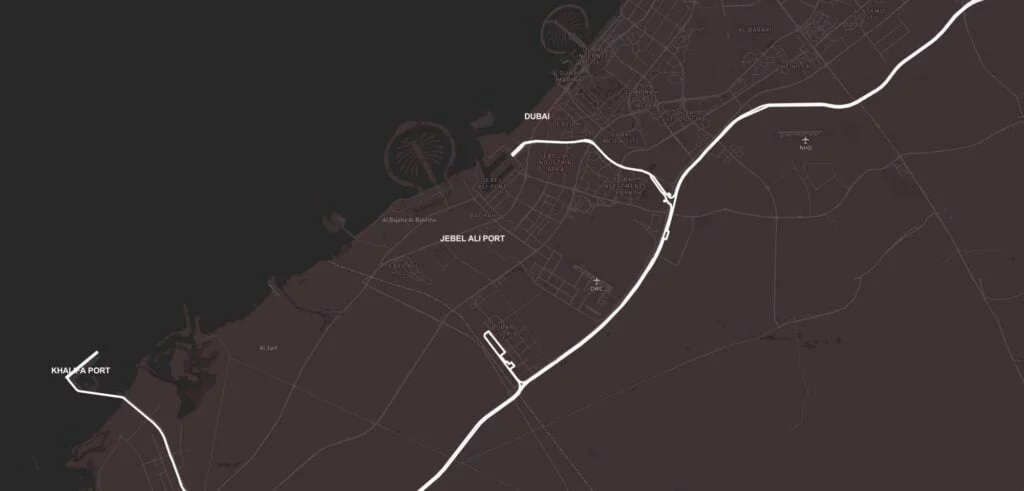Etihad Rail: UAE’s Mega Project Revolutionizing Travel and Trade
The rising number of real estate projects in recent years shows the growing interest of investors in Dubai’s property market. Its business-friendly atmosphere has attracted a large number of investors, who have pumped money into the city’s thriving economy and its real estate market, which is even better for economic growth in the upcoming years. Let’s take a glance at the reasons why you should invest in real estate in Dubai:
Stage One
A Game-Changer for the UAE’s Energy Industry The Etihad Rail project is being implemented in stages, with the first stage becoming fully operational in January 2016. Thisinitial phase primarily focuses on transporting granulated sulphur from Habshan and Shah toRuwais on behalf of ADNOC, the Abu Dhabi National Oil Company. Every day, the railwaysystem efficiently handles up to 22,000 tonnes of sulphur, providing a crucial logistical solutionfor the UAE’s energy industry. This streamlined transportation has significantly reduced relianceon road transport, resulting in improved safety, decreased congestion, and reducedenvironmental impact
Stage Two
Connecting the Emirates and Boosting Trade With the successful completion ofStage Two, Etihad Rail has taken a significant leap forward, extending across the UAE andconnecting major emirates and economic hubs. This expansion links the UAE’s border withSaudi Arabia at Ghuwaifat to Abu Dhabi, KIZAD (Khalifa Industrial Zone Abu Dhabi), KhalifaPort, Jebel Ali Port, Dubai, Sharjah, Ras al-Khaimah, and finally, Fujairah on the country’s eastcoast. This vast coverage ensures seamless connectivity across key areas, facilitating trade,investment, and economic diversification

Reduced Travel Time
Enhancing Connectivity The Etihad Rail project aims to enhance intercityconnectivity and streamline travel times across the UAE. With the completion of Stage Two,passengers can now travel from Abu Dhabi to Dubai in just 50 minutes, revolutionizing the waypeople commute between these major cities. Moreover, the journey from Abu Dhabi to Fujairahhas been reduced to a mere 100 minutes, allowing for faster and more convenienttransportation across the country. These reduced travel times will not only benefit individuals butalso foster increased business activity and tourism between different regions.
Benefits and Areas Benefited:
1. Enhanced Logistics: The Etihad Rail project serves as a crucial logistics backbone,facilitating the movement of goods and raw materials efficiently. It reduces thedependency on road transport, minimizing delivery times and enhancing supply chainmanagement for businesses across the UAE.
2. Economic Growth: The railway network stimulates economic growth by fostering tradeand investment. The enhanced connectivity and reduced travel times enable businessesto access larger markets, leading to increased opportunities for both local andinternational trade.
3. Environmental Impact: By reducing the reliance on road transportation, the Etihad Railproject significantly reduces carbon emissions and congestion on the highways. Thissustainable approach to transportation aligns with the UAE’s commitment toenvironmental conservation and mitigating climate change.
4. Employment Opportunities: The construction and operation of the Etihad Rail networkcreate a wealth of employment opportunities, both during the construction phase andongoing operations. The project supports skilled labour, engineering, and logisticssectors, contributing to job creation and the development of a highly skilled workforce.
Conclusion
The Etihad Rail project stands as a testament to the UAE’s commitment toinfrastructure development, economic diversification, and sustainability. With the successfulcompletion of Stage Two, this remarkable railway network connects major emirates, fosterstrade, and streamlines transportation across the country. As the project continues to evolve, it isset to deliver even greater benefits to the UAE, transforming the way people and goods move,another great reason for investors to invest in Dubai.

